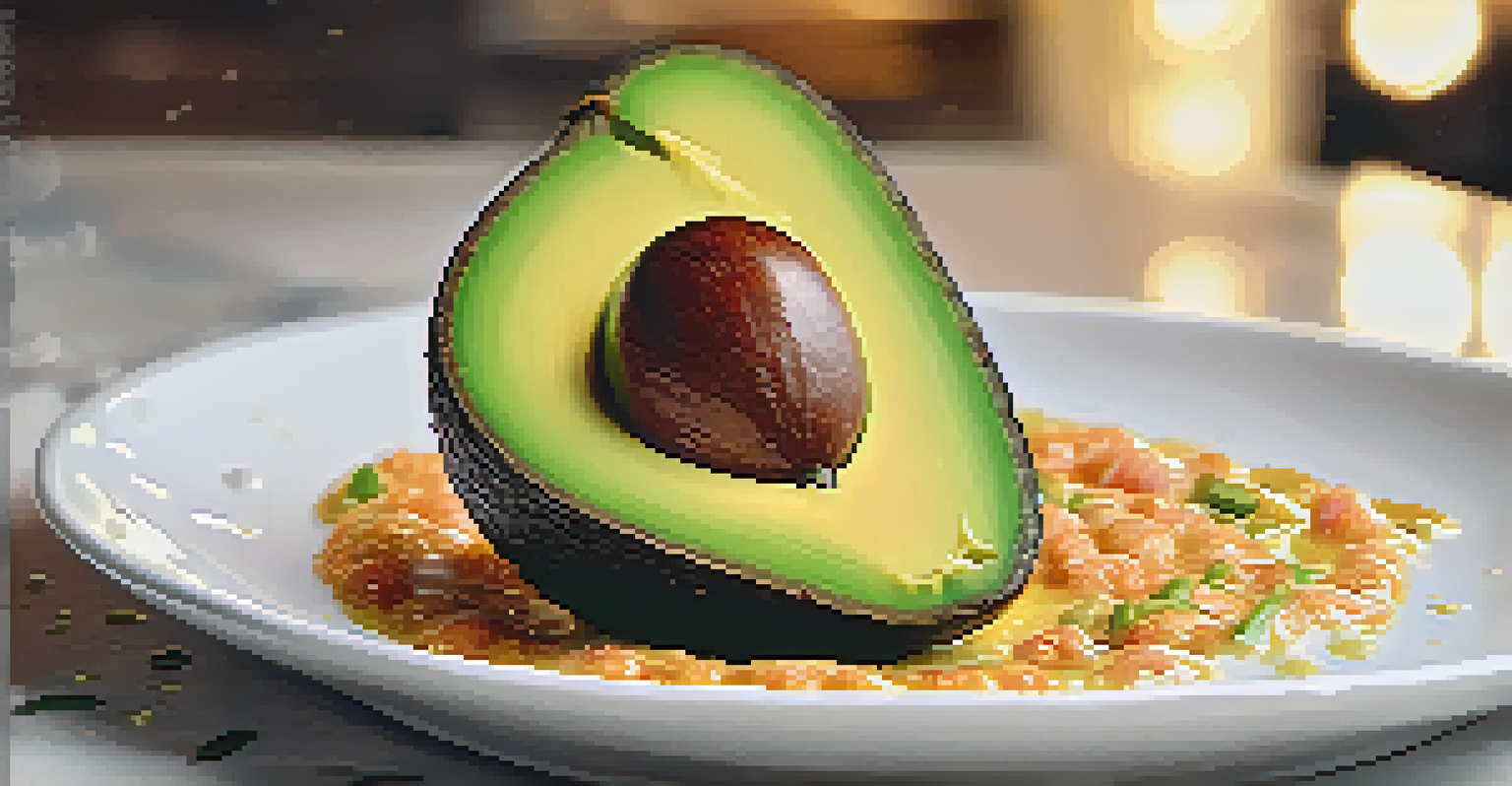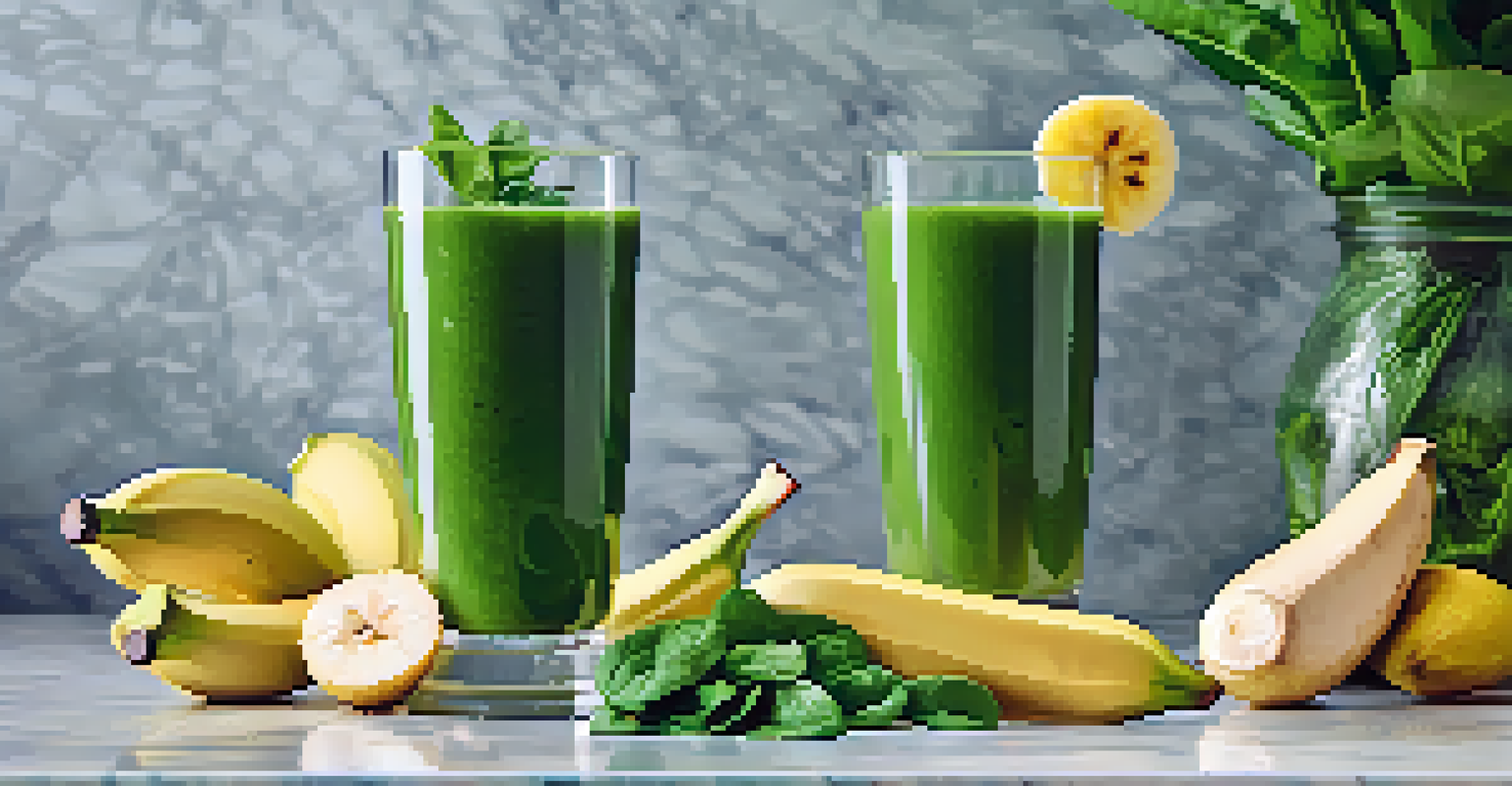5 Vegan Superfoods to Fight Inflammation Naturally

Understanding Inflammation and Its Impact on Health
Inflammation is the body's natural response to injury or infection, but chronic inflammation can lead to serious health issues like heart disease and arthritis. Essentially, it’s like your body’s fire alarm going off, but when it stays on too long, it can cause more damage than good. Understanding how inflammation works is crucial for taking steps to manage it effectively.
Let food be thy medicine and medicine be thy food.
Many factors contribute to chronic inflammation, including diet, stress, and environmental toxins. By focusing on what we eat, we can take proactive measures to reduce inflammation. Embracing a diet rich in whole foods, especially plant-based options, can be a game changer in combating this issue.
This article will explore five vegan superfoods that are particularly effective at fighting inflammation naturally. These foods are not only nutrient-dense but also delicious, making it easier to incorporate them into your daily meals.
Turmeric: The Golden Spice with Healing Properties
Turmeric has gained fame as a potent anti-inflammatory agent thanks to its active compound, curcumin. This vibrant yellow spice is often used in curries and can be easily added to smoothies or teas. Just a pinch of turmeric can transform your dishes while delivering impressive health benefits.

Research shows that curcumin can inhibit inflammatory pathways in the body, making it a powerful ally against conditions like arthritis. Imagine turmeric as a tiny superhero, swooping in to save your body from the clutches of inflammation. Pairing it with black pepper can enhance curcumin's absorption, so don’t forget to sprinkle some on.
Chronic Inflammation Affects Health
Understanding inflammation is crucial as chronic inflammation can lead to serious health issues like heart disease and arthritis.
Incorporating turmeric into your diet doesn't have to be complicated. Whether you’re stirring it into soups or blending it into a golden milk latte, this superfood is versatile and easy to enjoy.
Berries: Tiny Fruits Packed with Antioxidants
Berries, such as blueberries, strawberries, and raspberries, are not only delicious but also rich in antioxidants and vitamins. These tiny powerhouses help combat oxidative stress, a key contributor to inflammation. Think of berries as nature’s candy, providing a sweet treat that’s also beneficial for your health.
The greatest wealth is health.
Studies have shown that the antioxidants found in berries, like anthocyanins, can significantly reduce inflammatory markers in the body. Including a variety of berries in your diet can create a colorful and nutrient-rich palette on your plate, making healthy eating enjoyable.
Whether you toss them into your morning oatmeal, blend them into smoothies, or enjoy them as a snack, berries can easily be woven into your daily routine. Their versatility makes them a perfect addition to both sweet and savory dishes.
Leafy Greens: Nutrient-Dense Powerhouses for Your Plate
Leafy greens like spinach, kale, and Swiss chard are among the most nutrient-dense foods you can eat. They're packed with vitamins A, C, and K, as well as minerals like magnesium and calcium. Imagine these greens as the building blocks of a solid foundation—strong, reliable, and essential for your health.
The anti-inflammatory properties of leafy greens come from their high levels of phytonutrients and antioxidants. Regular consumption can help lower the risk of chronic diseases associated with inflammation. Plus, they're incredibly versatile, lending themselves to salads, smoothies, and stir-fries alike.
Vegan Superfoods Combat Inflammation
Incorporating vegan superfoods like turmeric, berries, and leafy greens into your diet can significantly reduce inflammation.
Incorporating leafy greens into your meals can be as simple as adding a handful to your smoothie or tossing them into a salad. With so many options to choose from, it’s easy to get creative while benefiting from their health-boosting properties.
Ginger: A Spicy Root with Remarkable Benefits
Ginger is not just a spice that adds zest to your dishes; it’s also a powerful anti-inflammatory agent. The compounds in ginger, particularly gingerol, have been shown to reduce inflammation and pain in various studies. Think of ginger as your kitchen's go-to remedy, ready to tackle inflammation with just a sprinkle.
Incorporating ginger into your diet can be as simple as adding fresh ginger root to your smoothies or sipping on ginger tea. Its warm, spicy flavor adds a delightful kick to both sweet and savory recipes. Plus, it’s a fantastic way to warm up during colder months.
Whether you’re looking to soothe an upset stomach or reduce inflammation, ginger is a fantastic ally. Its myriad of uses makes it an essential superfood for any kitchen.
Avocado: The Creamy Delight That Packs a Punch
Avocado is often celebrated for its healthy fats, but it also boasts impressive anti-inflammatory properties. Rich in monounsaturated fats, vitamins, and minerals, avocados can help lower inflammation levels in the body. Picture avocados as nature's creamy treasure, offering a delightful taste while nourishing your body.
The antioxidants found in avocados, including carotenoids and tocopherols, contribute to their anti-inflammatory effects. Adding avocado to your meals not only enhances flavor but also boosts the nutritional value. From guacamole to salads, there are countless ways to enjoy this versatile fruit.
Embrace Plant-Based Eating Habits
Adopting a plant-based diet focused on whole foods can help manage inflammation and improve overall health.
Incorporating avocado into your diet can be both easy and satisfying. Spread it on toast, blend it into smoothies, or simply enjoy it sliced with a sprinkle of salt for a quick snack. With so many options, it’s hard to resist this creamy delight.
Embracing a Plant-Based Diet for Inflammation Relief
Adopting a plant-based diet can be a powerful strategy in managing inflammation. By focusing on whole, minimally processed foods, you can nourish your body while reducing the intake of inflammatory ingredients like refined sugars and unhealthy fats. This shift can feel like a breath of fresh air for your body, rejuvenating your health.
Incorporating the five superfoods discussed can serve as a foundation for a balanced, anti-inflammatory diet. The beauty of plant-based eating is its versatility, allowing for endless meal combinations that are both satisfying and healthful. Embracing a variety of fruits, vegetables, whole grains, and legumes can lead to long-term benefits.

As you explore these superfoods, remember that small changes can lead to significant improvements. By making conscious choices about what you eat, you can take control of your health and enjoy a vibrant, inflammation-free life.